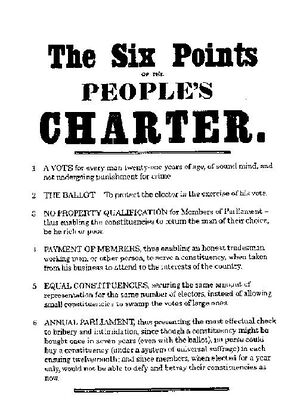《维多利亚2》中的政治改革系统试图模仿19世纪和20世纪各国变化多样的政治形势。维多利亚时代也许最为人所知的是其广泛的政治改革,在欧洲尤为多彩,但其他地方也并不逊色。政治改革制度是社会改革制度的近亲,而社会改革制度在游戏后期的“进步时代”具有更重要的历史意义。与玩家可以使用的社会改革不同,维多利亚2号的政治改革是多种多样的,其影响对玩家来说远没有那么明确。从奴隶制度到投票方式再到工会,玩家在政治领域的决策权范围相当可观。
为什么要改革?
推行政治改革有很多原因。如果你的目标是一个特定类型的政府,你可能想要实施改革,将你目前的政府类型改变成其他类型。也许你想让社会主义下层阶级有更大的发言权,这样你就可以实施社会改革,规划经济。或者你想确保自由派富裕阶层控制政策。或者,你也许想让改革倒退,把最终的权力交给反动贵族。不管情况如何,在《维多利亚2》里,政治改革几乎是不可避免的,尤其是当你想阻止雅各宾和无政府自由主义的反抗。每一次改革都会增加对移民的吸引力,不过除非你身处新大陆,否则这几乎没有什么用处。
政治改革类型
总共有八项政治改革,每一项改革的选择数目各不相同。与社会改革不同,一些政治改革不是“下一步”改革;对于这种改革,玩家可以实施任何可能的选择,而不需要已经实施了以前的改革。政治改革和社会改革的另一个区别是,政治改革没有“成本”;也就是说,你在预算的负面栏里看不到任何东西。然而,每一项改革都存在着非常严重的利益权衡,玩家必须相互权衡。
注:一般来说,改革是从上到下按最保守/反动到最自由的顺序排列。
奴隶制
奴隶制是一种简单的政治改革:你可以允许它,也可以不允许它。许多国家在游戏开始时实行奴隶制,主要是在非洲和亚洲,但也有一些新大陆国家。大多数欧洲国家和新大陆的大多数国家都是从废奴开始的。
允许
- 大多数国家不会将奴隶制合法化,所以问题是,对于那些以奴隶制开始的国家来说,是否应该保留奴隶制。保持奴隶制有很多好处:奴隶没有工资,所以你可以在你的RGO中不花费任何成本就获得生产力。此外,奴隶的必需品需求总是处于完全满足状态,即使他们没有现金(因为奴隶实际上不需要任何商品作为必需品)。最后,尽管奴隶的生产力较低,但他们不投票。一个暴虐的独裁者最好是由顺从的奴隶来服务,而不是由缴纳更多税款的自由人。
- 不存在将非奴隶人口变为奴隶的机制,所以使奴隶制合法化几乎没有效果,除非该国后来吞并了一个奴隶制国家。
禁止
- 禁止奴隶制会立即解放所有被奴役的人民,允许他们在其他政治改革和政党立场允许的范围内享有充分的权利。禁止奴隶制可能是有争议的,特别是在美国。在开局前30年左右,奴隶制对美国来说是一个重要问题,直到内战解决了这个问题。奴隶的效率不高,所以释放他们会提高生产力,可能还会增加税收。自由人的人口增长速度也比奴隶更快,所以解放奴隶可以充实你的技工队伍。
- 美国对结束奴隶制有特别的限制,防止以非历史的方式和平解决奴隶制问题。一旦“奴隶之争”修正被触发(通常在游戏开始后的一两年内),奴隶制只能在内战开始后结束,或者在1875年之后——如果美国设法避免战争的话。
- 例: 海地
上议院组成
决定上议院组成的方法对游戏的进展非常重要,因为哪个政党控制上议院决定了改革的可行性。在这里所选的选项决定了分配上议院席位的程序,这会严重影响选举结果。有四种不同的改革可用,玩家不需要逐步改革。
仅执政党
- 顾名思义,这个选项将上院的席位限制为与执政党意识形态相似的成员。政党和政府在决定这一类型的政治行为方面具有灵活性。
- 例:沙皇俄国杜马
直接任命
- 这项改革将上议院的参与权限制在有财产的富人(贵族和资本家)身上。这对上议院的组成有着明显的影响:所代表的意识形态只会是少数特权阶层的意识形态。也就是说,如果在一个贵族众多的国家选择这项改革,你可以期待一个高度保守/反动的国家,而一个资本家相对较多的国家可能是相当自由的。不管怎样,如果你想扭转更广泛人口的趋势,这都是一个很好的选择。
- 例:21世纪的加拿大参议院
每个地区两个席位
这项改革为每个地区分配了两个席位,使得较小或人口较少的地区增加了权重。
- 例:1789年至今的美国参议院
基于人口
这项改革允许根据一个地区的人口分配席位。对于那些希望上议院代表全国投票人口的玩家来说,这是一个重要的改革。
- 例:德意志帝国的联邦议院
选举权
选举权是另一项非常重要的政治改革。这里选择的选项在很大程度上决定了你的上议院会是什么样子,以及玩家作为领袖会有什么样的选择。总共有六种选择,改革必须循序渐进。
无选举权
- 这个选项完全禁止投票。这样的改革水平是绝对君主制和总统专政等的典型。这个选项对玩家很有用,因为它允许玩家完全控制政治场景。
- 例:绝对君主制奥地利
地产限制
- 这个选项将投票权限制在有土地的个人身上,在《维多利亚2》中大致上是指富裕阶级(严格来说并不准确,因为早期美国对投票的限制仍然允许相当多的穷人和中产阶级男性投票)。因此,可以预期到的是,这种选择将产生只由富人认为有吸引力的意识形态组成的上院,即贵族占上风的国家是保守/反动的,而资本家占统治地位的国家则是自由的。
- 例:早期英国国会
财产加权
- 这项改革允许富裕阶级和中产阶级有选举权,从而将选举权扩大到手工业者、职员、神职人员、军官和官僚。然而,富人的选票是中产阶级的两倍。这一权重可能非常重要,特别是因为许多国家一开始有合理数量的贵族,但中间阶层的人口相对较少。同样,这项改革的结果可以预期反映被赋予权力的民众的信念。如果这个国家有大量的资本家和职员,那就会有自由主义的出现,而贵族和军官很可能带来反动主义或保守主义。
- 例:现代公司投票结构
财产限制
- 这项改革在其他方面与财产加权相同,但取消了权重。所有的富裕阶级和中产阶级的人都可以平等地投票。如果贵族人口众多,但手工业者或职员的数量更大,则这对于获得自由派选票很有用,否则情况可能相反。
- 例:早期美国的投票制度
普选加权
- 这项改革将投票权扩大到所有阶层,但增加了对有钱人的支持。富裕阶层的投票有三倍权重,中间阶层两倍,贫穷阶层一倍。通常来说,这项改革只有在玩家从财产限制过渡到普选制或者反过来,又或者作为对抗要求改革的反叛者的对冲时才有用。
- 例:普鲁士众议院
普选制
- 普选制听起来是这样的:平等和普遍的投票权给予所有的人群(除非是奴隶或少数民族,如果政策要求的话)。这是为那些希望实现充分民主的玩家准备的,在那里人民的意愿得到充分的体现。这项改革让你听命于你的人民(最明显的是贫穷阶层,他们几乎总是构成了你的大部分人民)。并且,这项改革很受欢迎,能够劝退反叛者。
- 例:几乎普遍适用于所有现代共和国、民主政体和君主立宪制国家
投票制度
投票制度决定了你的选举方式。一共有三项改革,而且不是“下一步”改革。
简单多数制
- This system gives victory to the candidate with the most votes. Expect bi-polar results focusing on the two most popular parties, favoring the more popular party heavily.
- Example: The United States Congress
杰斐逊法
- Also known as the d'Hondt method or the Bader-Ofer method, this reform allocates seats proportionately by using a mathematical system which divides seats among those parties who received the most votes.[1] Expect a multiparty system that still favors the most popular parties.
- Example: The modern Danish Folketing
比例代表制
- This method pools votes and assigns winners seats based on the exact proportion of votes garnered by each party insofar as the number of seats available allows. Expect this reform to very accurately portray voter party preferences. This accuracy can make for some very messy political situations, as even the smallest parties can get a voice.
- Example: The Weimar Republic Reichstag
公众集会
公开集会的权利是一个运转良好的共和国或民主政体的核心,对整个公民社会来说非常重要。在《维多利亚2》中,它的影响力被简化了。有两种选择可以选。
不允许
- 这个选项完全禁止公众集会。这实际上没有什么实际意义,“不允许”选项没有任何效果,只要玩家不喜欢它的对位,它就是可取的。
- 例:大多数情况下的苏联
允许
- 这个选项允许举行公开的政治集会。这使政治意识提高了25%。背后的机制是模糊的,但可以假设它对选民觉醒度有明显的影响。
- 例:大多数情况下的美国
出版权
与公开集会一样,在《维多利亚2》中,新闻权是一项非常直接的改革,只涉及一个因素和最少的选项。有三种选择,它们是递增的。
国家控制
- 这一选择将媒体限制在国营或国家认可的机构,允许政府几乎完全控制信息。实际上,这会使人群觉醒度的效果降低25%。如果你想保持保守,这非常方便,但如果你想成为自由主义者、社会主义者,或者快速发展科技,这会非常糟糕。
- 例:纳粹德国
出版审查
- 这种选择允许新闻界有一定程度的自由,但政府保留审查其认为冒犯或反对其目标的材料的权利。在游戏中,这意味着什么都没有。这个选项只是一个中间选项,只有当玩家无法切换到更想要的改革,或者正在从改革的一端过渡到另一端时,才可能使用这个选项。
- 例:普鲁士
出版自由
- 这种选择使新闻界摆脱了政府的控制。信息自由流动,让人们自己决定。这增加了25%的人群觉醒度的效果,对希望迅速改变路线或者在研究上获得优势的玩家非常有用。
- 例:现代美国
工会
Trade unions were historically not an issue until the latter half of the 19th century, but this reform is available to the player from the start. There are four options, and they are incremental.
非法
- This completely bans unions. This option has no effect, it is used only if one wishes to avoid the effects of the other choices or if one begins with the reform and cannot yet change.
- Example: Late fascist Italy
国家控制
- This reform allows strictly regulated unions to act on a very short leash. In game terms, it increases pop's demand for social reforms by 10%.
- Example: Early Communist Eastern Bloc countries
允许非社会主义
- This reform allows all unions so long as they are not socialist. This further increases the demand for social reforms, up to 20%.
- Example: United States circa the late 1800's
全部允许
- This reform allows unions total freedom to organize, regardless of their political orientation. Practically speaking, this increases the demand for social reforms to a total of 30%.
- Example: Modern Europe
政党
The formation and maintenance of political parties is important to almost all political systems to some degree. One-party dictatorships require a strong state-run party to provide them with loyal zealots. Monarchies use political parties within the rich-dominated parliament to build legitimacy. Republics use parties as the linchpin of their whole political system. The player has five choices related to the level of power the ruling party is accorded in relation to opposition parties. These choices are incremental.
禁止公开组党
- The ruling party is completely dominant, and actively seeks out and crushes the opposition with force. By limiting the competition, this choice increases support for the ruling party by 16,67%. This is very useful for players who wish to maintain the status quo.
- Example: the USSR
骚扰
- The ruling party no longer uses violence against the opposition, but they are endlessly heckled and inconvenienced by ruling party goons and government officials. At this level, ruling party support is improved by 13,04%.
- Example: Many modern African "democracies"
操纵选区
- The ruling party or parties no longer openly attempt to interfere with the business of the opposition, but instead skew electoral districts in favor of their own interests. At this level, the increase in ruling party support is 9,09%.
- Example: American state and Congressional politics even into the 21st Century, Singapore's electoral system
记名投票
- The political process is mostly open, but citizens' ballots are not confidential. The ruling party can thus employ goons or government officials to harry opposition voters into voting for the ruling party. This improves ruling party support a meager 4,76%.
- Example: 19th-century America
无记名投票
- The secret ballot allows voters to vote confidently in confidence. So long as their opinions are known only to themselves and those they share them with willingly, the ruling party will have extreme difficulty harassing opposition voters specifically. This reform has no effect, allowing party support to reflect voter preferences.
- Example: Modern America, Europe, and most other full-blooded democracies.
实施与废除改革
Of all the ideologies, only liberals are consistently in favor of liberal political reforms. The others require certain circumstances to support liberal reform. Reactionaries consistently support reform repeal, while other ideologies may be led to support these measures if circumstances permit. Generally, though, expect that a reform towards liberalism will not be undone unless via event, imposed by successful rebels, or though extreme luck of circumstance.
If the player wishes to implement the reforms as fast as possible, it is advised to keep militancy high(but not allow it to rise too much) by holding elections and then changing the ruling party(every change bumps it up a bit), and getting militancy from events. Militancy is what gets all those conservatives in the upper house to budge and vote "Yes" instead of "No", it is how you get above the majority limit that always seems to be taunting you from ~5% away. Watch out for too much militancy though, and back off before your dissatisfied subjects take up arms.
注释
- ↑ Specifically, a table is constructed listing the votes received by each party in the first column. The second column lists the number of votes divided by half, the third lists them divided by three, and so on. When the table is completed, the representatives are appointed by those parties holding the largest numbers on the table. See here for an example.




